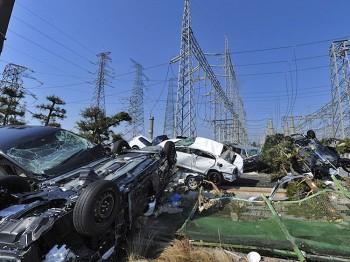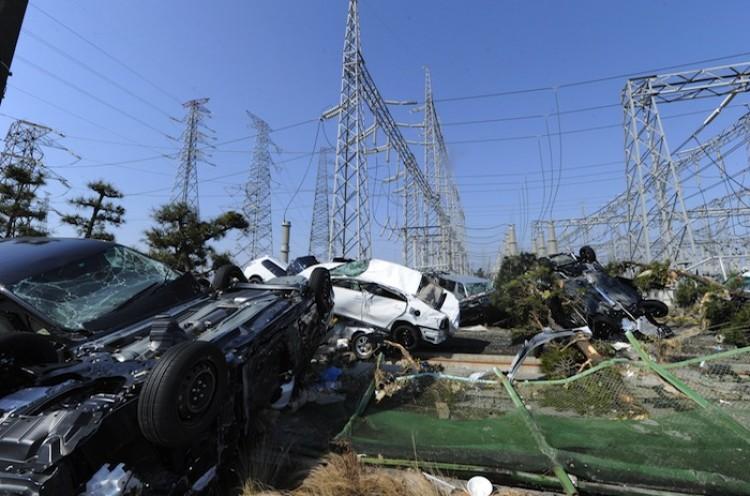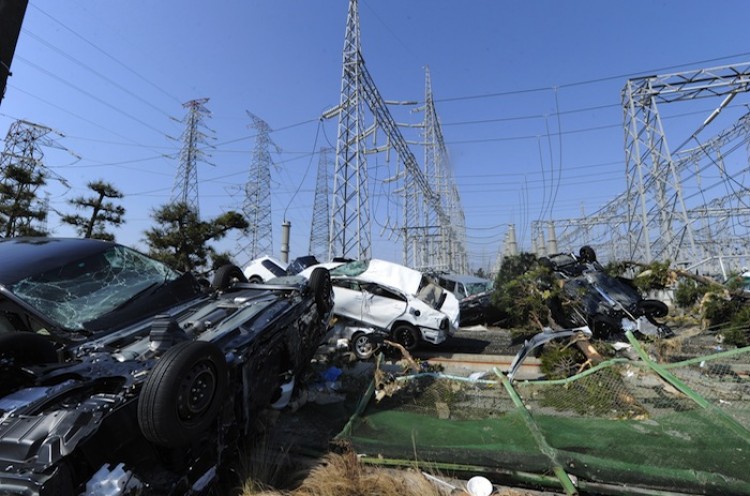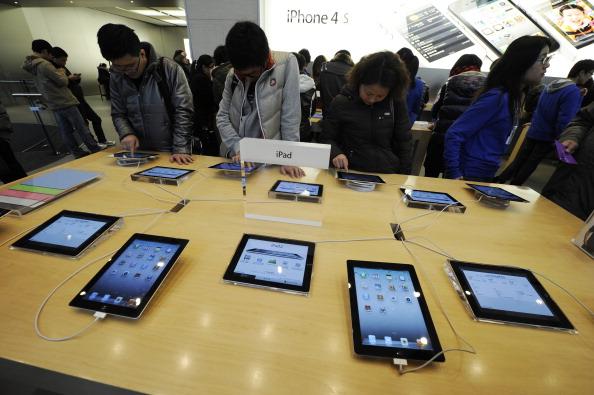Japanese Manufacturers Burdened by Electricity Shortages
Three months after the triple disaster earthquake-tsunami-nuclear meltdown struck Japan, the Japanese car industry is still crippled by the limited electricity supply.

CRIPPLED: Cars smashed by the tsunami sit piled together next to a power grid to the east of Sendai, Japan on March 13, two days after the massive magnitude 9.0 earthquake and tsunami hit the region and crippled the nation's power supply. Mike Clarke/Getty Images
|Updated:




